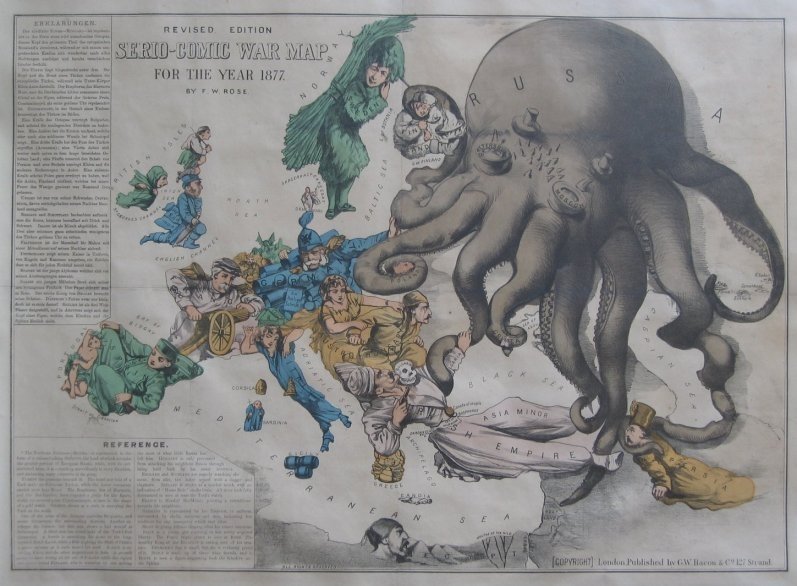http://www.rigorousintuition.ca/board/viewtopic.php?t=18973&start=15
Pierre d'Achoppement wrote:Sorry for my hasty answer Code Unknown, turns out it was indeed used before nazi used it in an antisemtic context, here's a very long thread about it from The Octopus News Magazine Online, Your Octopus, Squid and Cephalopod Information Center:
http://www.tonmo.com/forums/showthread.php?t=889
Thanks, Pierre - some interesting info and commentary on that thread. Such as:
An image-maker searching for an animal to use as a stand-in for a community or polity of aggressive, expansionist repute really can't ask for more than an octopus provides. Flowing and plastic, its outlines can be stretched to envelop territories large or far-flung; the lack of a "face" makes for a blank canvas on which to project any desired visage; because octopus are shy and dexterous, they can represent any group or state that outsiders consider sneaky and conspiratorial.
I think the opaque nature of cephalopods to most people is key, here: poorly understood, they can represent any entity that defies the comprehension of those who find it threatening. Between Arab and Israeli, Communist and Capitalist, Fascist and Democrat is a fundamental chasm, a critical lack of engagement and understanding. The use of an octopus to arouse fear of "The Other" amounts to a tacit admission of moral and intellectual failure: "We don't understand you, and we don't to." [sic]
A little more hunting on my part also found this, showing a cartoon against the Southern Pacific Railway monopoly dating back to 1882:
http://nationalhumanitiescenter.org/pds/gilded/power/text1/octopusimages.pdf
There's also this rather Lovecraftian reference from Jung in his visionary gnostic meditation Seven Sermons to the Dead:
Abraxas generates truth and falsehood, good and evil, light and darkness with the same word in the same deed. Therefore Abraxas is truly the terrible one.
He is magnificent even as the lion at the very moment when he strikes his prey down. His beauty is like the beauty of a spring morn.
Indeed, he is himself the greater Pan, and also the lesser. He is Priapos.
He is the monster of the underworld, the octopus with a thousand tentacles, he is the twistings of winged serpents and of madness.
But I already knew about that one. (In fact I happened to reread the Sermons directly after waking up from my dream - not having read it in over a year and not recalling it had any reference to octopi. Coincidence?)
Anything pre-1882 then? Linking octopi to conspiracies/monopolies/etc. Anyone?









